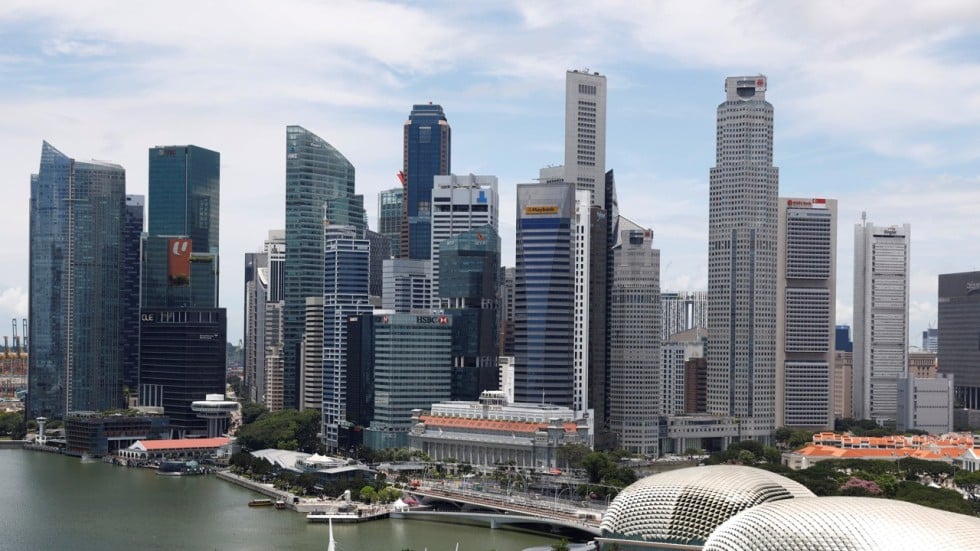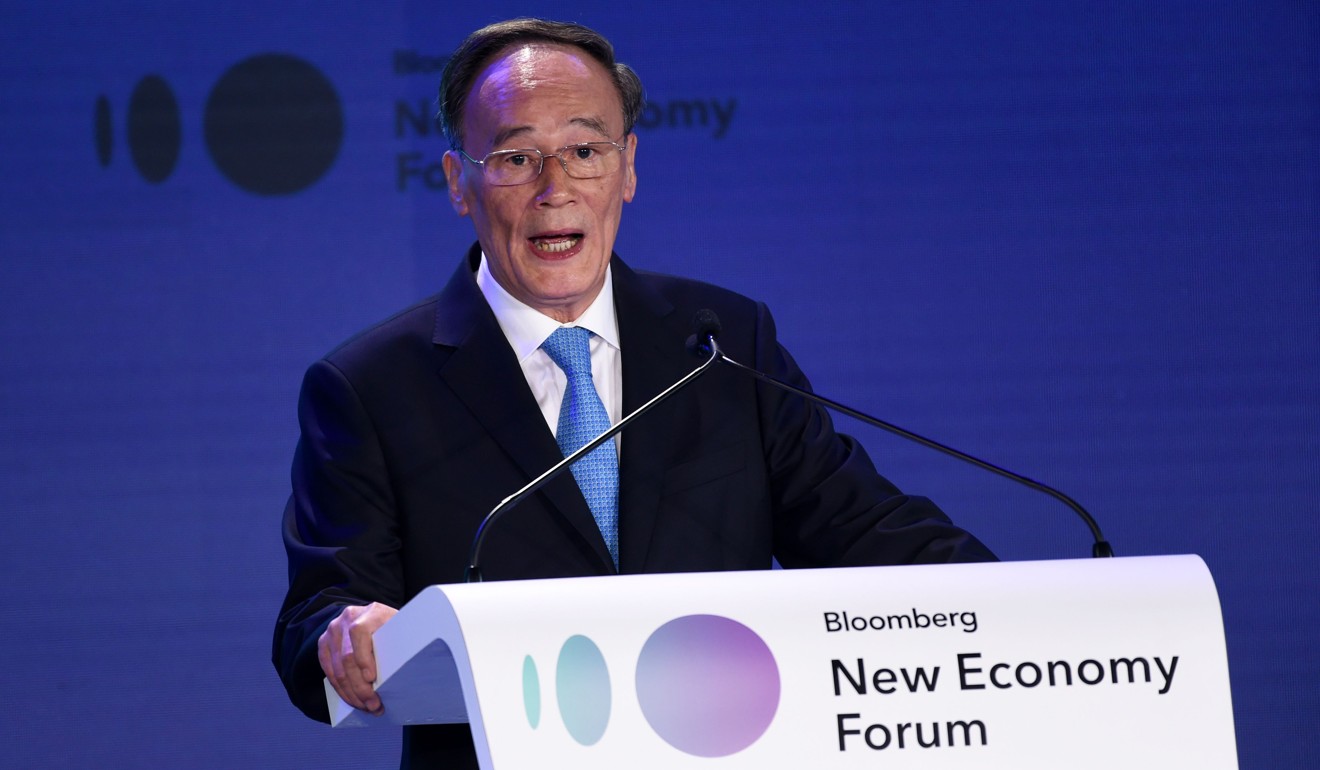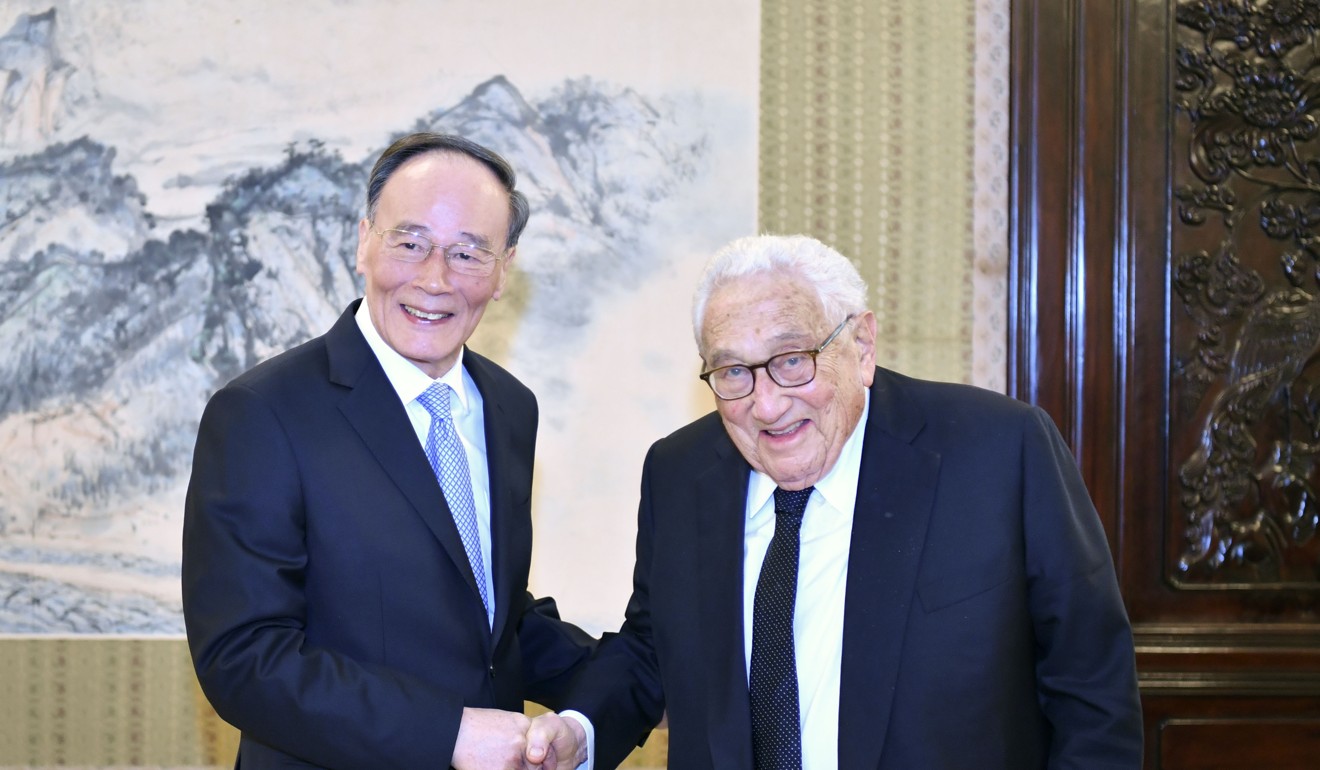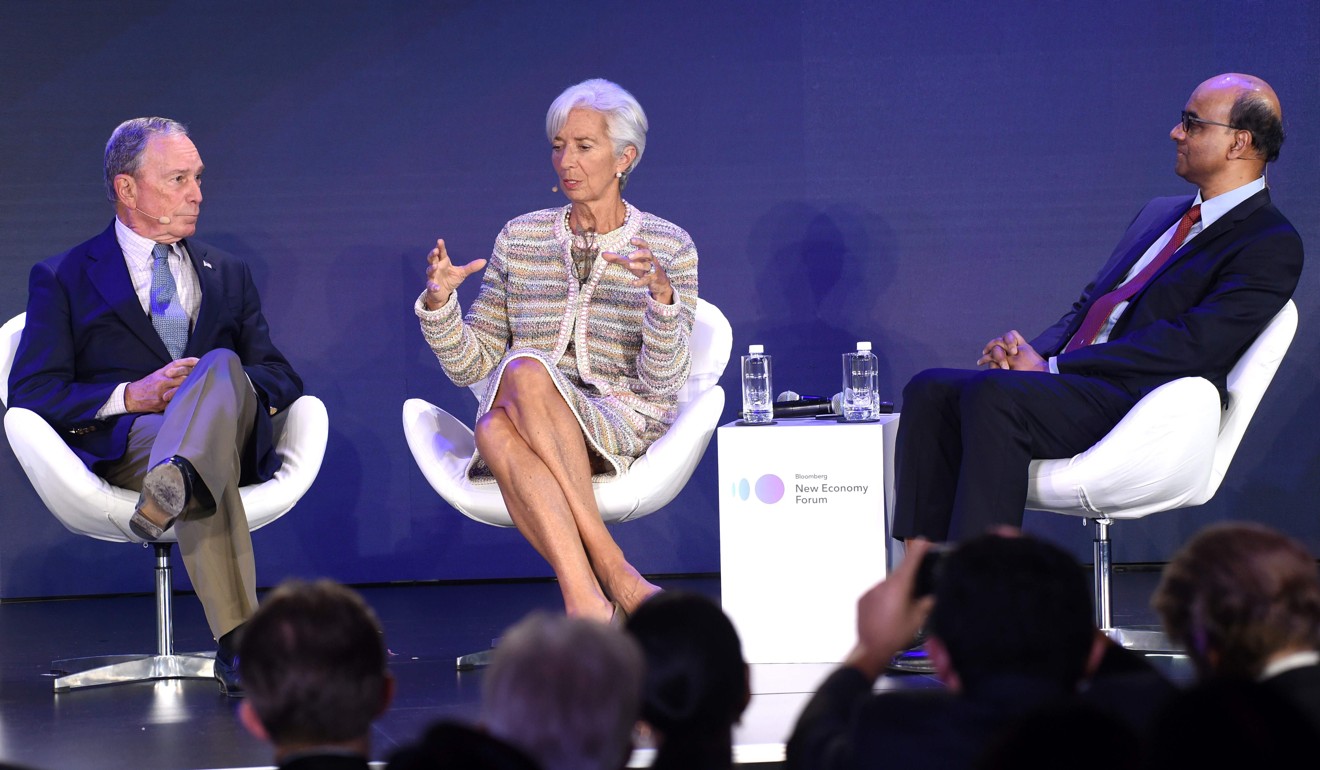Beijing mainly stayed away from event it was originally scheduled to host, leaving some frustrated that its voice went unheard
PUBLISHED : Sunday, 11 November, 2018, 3:58pm
UPDATED : Monday, 12 November, 2018, 6:58am

Singapore stepped in to host the Bloomberg New Economy Forum after it was moved from China. Photo: Reuters
tammy.tam@scmp.com
Those were the words of Michael Bloomberg, founder of the global finance media network of the same name and former mayor of New York, as he opened the high-level “New Economy Forum” last week.
The two-day event was moved to the city state from Beijing to avoid clashing with the opening of the inaugural China International Import Expo.
As if to quell speculation that China was not really keen on the forum amid its escalating trade war with the US, Vice-President Wang Qishan, a trusted aide of President Xi Jinping, flew to Singapore to deliver a keynote speech.

Chinese Vice-President Wang Qishan speaking at the Bloomberg New Economy Forum in Singapore on November 6. Photo: AFP
He also met many old friends, including Bloomberg and former US secretary of state Henry Kissinger. Wang ended his whirlwind tour with a meeting with Singapore Prime Minister Lee Hsien Loong.
So would Bloomberg have given the same compliment to Beijing had the venue not been changed? Very likely, yes, but nice words make people happy. A Singapore business friend of mine proudly accepted the praise, declaring: “Where else in Asia can you pull it off in just about six weeks other than Singapore – or Hong Kong?”
It was kind of him to include Hong Kong. For some reason, many people in the two cities are obsessed with constant comparisons, politically, economically and socially.
We do not know whether Hong Kong was ever considered as a venue for the forum, but Singapore proved it was the right choice by ensuring a well-organised event.
In addition to Kissinger, the long VIP list included former US treasury secretary Hank Paulson; IMF chief Christine Lagarde; former US Federal Reserve chair Janet Yellen; former chief economic adviser to US President Donald Trump, Gary Cohn; former Australian prime minister Kevin Rudd; Malaysian prime minister-in-waiting Anwar Ibrahim; ministers from other Asian countries and Hong Kong’s first chief executive Tung Chee-hwa.

Chinese Vice-President Wang Qishan meeting former US secretary of state Henry Kissinger in Beijing, November 10. Photo: Xinhua
Conspicuously missing were former or serving Chinese officials, even though the two days of discussions focused on China-US relations.
One could argue, though, that since Wang made China’s official line abundantly clear in his keynote speech, there wasn’t much left for other Chinese officials to say.
So it was that in the following sessions, it fell upon a number of academics from Beijing to represent China’s views.
Kissinger: China, US must reveal red lines to avoid conflict
“Vice-President Wang sent a strong message already, but without the active participation of senior Chinese officials here, I am afraid that China’s views were not sufficiently well presented throughout the discussions,” Peking University professor Zha Daojiong lamented. “Those of us who are here are outside government decision-making, while those on the inside haven’t come. Maybe they were too busy or maybe just unwilling to come.”

Managing Director of the International Monetary Fund Christine Lagarde (centre) speaks while former New York city mayor Michael Bloomberg (left) and Singapore’s Deputy Prime Minister Tharman Shanmugaratnam (right) listen during a panel discussion at the Bloomberg New Economy Forum in Singapore on November 7, 2018. Photo: AFP
I am afraid that China’s views were not sufficiently well presented throughout the discussions
Zha Daojiong, Peking University
Zha, a prominent scholar on international relations, actively exchanged views with other speakers in many sessions, but found himself mainly on the defensive. If China wanted its narrative to be better understood, he said, it should have sent more of its decision makers to speak alongside ministers and politicians from other countries.
Whatever the reasons, with Chinese officials seemingly reluctant to be grilled in this kind of setting, it was left to participants from Hong Kong to do the talking on stage.
Among the business heavyweights from the city in attendance, Hong Kong stock exchange CEO Charles Li Xiaojia impressed the audience with his take on the problematic China-US “marriage” and argued that the Belt and Road Initiative was not China’s Marshall Plan.
Were Li and other Hong Kong or mainland participants there to demonstrate their oratory skills or because of the need to ensure their side of the story was put forward? Hopefully mainland officials will realise the value of taking part in such events, rather than being held back by considerations of “risk”.
Otherwise, holding the forum in Singapore is not such a bad idea after all.
This article appeared in the South China Morning Post print edition as: Beijing missed out by sending too few officials to Singapore

No comments:
Post a Comment